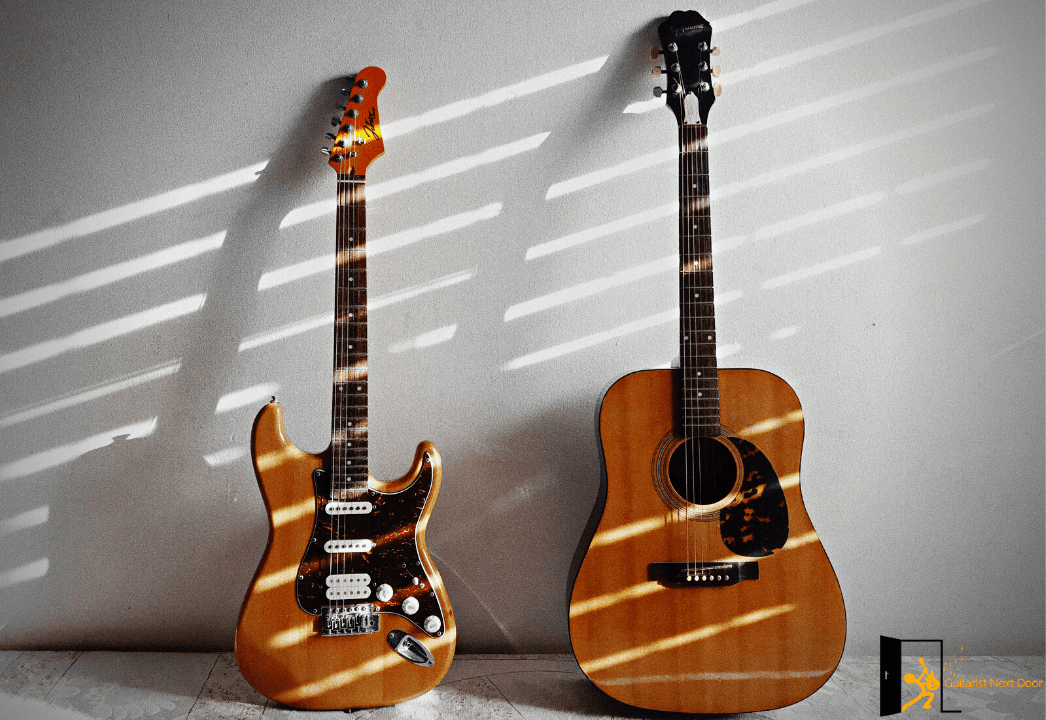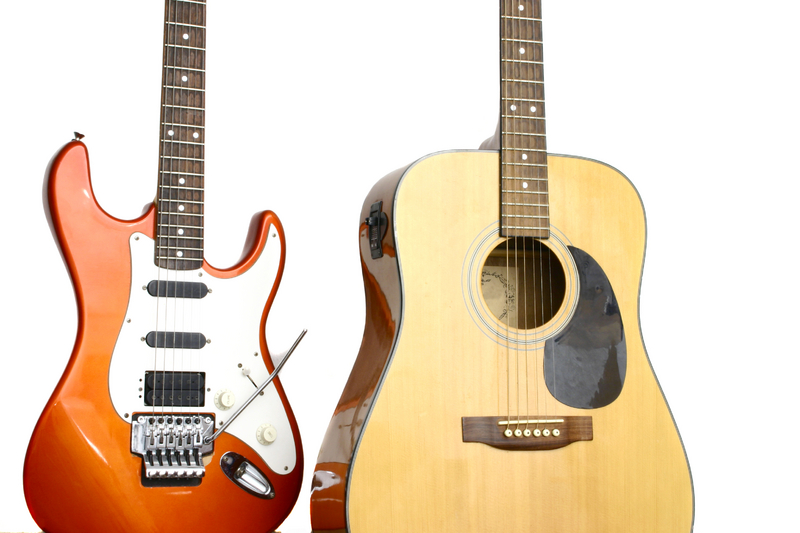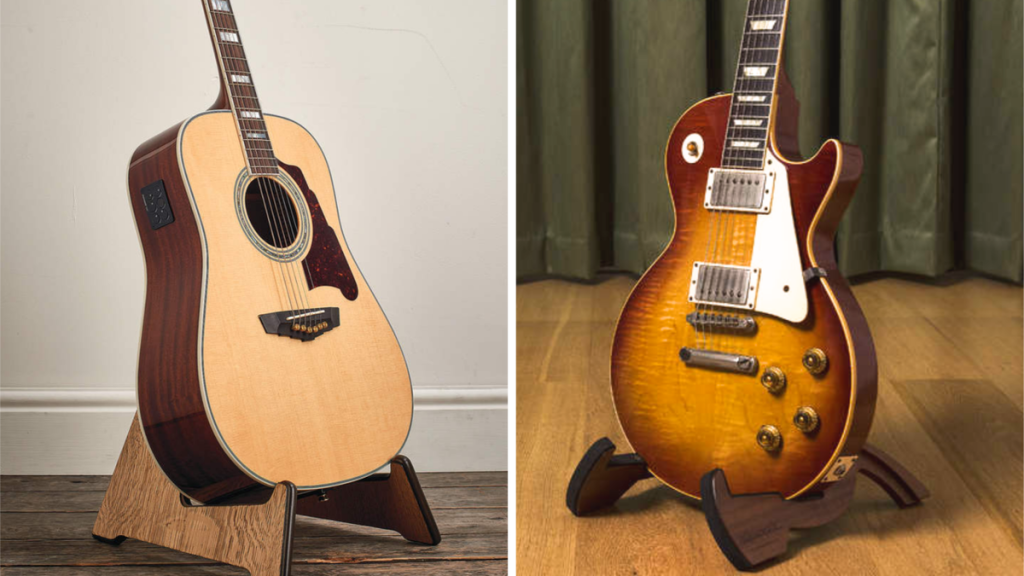Blog
“Acoustic vs. Electric Instruments: Which One is Right for You?”
When you start your musical journey, one of the first decisions you’ll face is choosing between acoustic and electric instruments. Whether you’re a beginner looking for your first instrument or an experienced musician trying to decide which type of instrument best suits your style, this decision is crucial. Both acoustic and electric instruments come with their own unique characteristics, advantages, and challenges. In this article, we’ll explore the differences between acoustic and electric instruments, helping you make an informed choice based on your preferences, playing style, and goals.
1. Sound and Tone: Natural vs. Amplified
Acoustic Instruments
Acoustic instruments, like acoustic guitars, violins, and pianos, produce sound naturally through their construction. For example, the sound of an acoustic guitar is produced by the vibration of the strings, which is amplified by the hollow body of the instrument. This means that the sound is organic, resonating from the instrument itself without the need for external amplification.
Acoustic instruments tend to have a warm, rich tone that reflects the natural sound of the materials used in their construction (wood, metal, etc.). The tone is often more intimate and natural, with a focus on subtle nuances and timbre.
Electric Instruments
Electric instruments, such as electric guitars, electric basses, and electric violins, generate sound through electronic pickups that convert the vibration of the strings into electrical signals. These signals are then amplified through an external amplifier or speakers. Electric instruments have more control over their sound and can produce a wider variety of tones, often with effects such as distortion, reverb, and delay.
Electric instruments are generally capable of creating a more powerful, punchy sound that is often used in genres like rock, jazz, and electronic music. They also allow for greater manipulation of tone, with the ability to fine-tune the sound using amplifiers, pedals, and effects.

Which One is Right for You?
- Go for an acoustic instrument if you prefer a natural, organic sound and plan to play in quieter settings or acoustic genres like folk, classical, or singer-songwriter music.
- Choose an electric instrument if you want more control over your sound and are interested in playing amplified music, experimenting with effects, or performing in louder settings like rock bands or electronic performances.
2. Portability and Setup
Acoustic Instruments
One of the biggest advantages of acoustic instruments is their portability. Since they don’t require any external amplification, you can take them anywhere and start playing immediately. Acoustic guitars, for example, are ideal for jam sessions, camping trips, or any situation where you want to play without worrying about extra equipment.
However, because they rely on their body for sound, acoustic instruments tend to be larger and bulkier. For example, acoustic guitars can be heavy for younger players, and pianos require a lot of space.
Electric Instruments
Electric instruments are generally more compact, but they come with additional equipment like amplifiers, pedals, and cables, which can make them less portable compared to acoustic instruments. Electric guitars and basses, for example, require a separate amplifier to play at optimal volume, and you’ll likely need power sources and extra cables.
While electric instruments may be less portable, the option to use headphones with a small amplifier or digital interface can provide the convenience of silent practice at home without disturbing others.
Which One is Right for You?
- Go for an acoustic instrument if you want something easy to carry and play anywhere, without needing additional equipment like amps or cables.
- Choose an electric instrument if you’re primarily practicing at home, have a setup for amplification, or are planning to perform in a band where volume and effects are needed.
3. Difficulty and Learning Curve
Acoustic Instruments
Learning an acoustic instrument, especially something like an acoustic guitar or violin, can be challenging for beginners. Acoustic instruments tend to have thicker strings, requiring more finger strength, and they can be more difficult to tune and maintain. However, the simplicity of the instrument, with no need for electronics, can make it a good choice for those who want to focus purely on technique.
The learning curve for acoustic instruments can be slower, but the progress tends to feel more organic since you are relying solely on your skill to create sound.
Electric Instruments
Electric instruments often come with an easier learning curve, especially for beginners. For instance, electric guitars tend to have lighter gauge strings that are easier on the fingers, and the action (distance between the strings and fretboard) is often lower, making it easier to press the strings down. Additionally, electric instruments can help beginners by offering feedback through amplification, making it easier to hear their playing.
However, electric instruments also require learning how to use amplifiers, pedals, and other electronic equipment. This can add a layer of complexity, especially for those who are new to technology or gear.
Which One is Right for You?
- Go for an acoustic instrument if you want to focus on technique and appreciate the challenge of learning without external assistance.
- Choose an electric instrument if you want a smoother, easier introduction to playing, especially if you’re looking to play more modern genres or enjoy experimenting with sound.
4. Versatility in Music Genres
Acoustic Instruments
Acoustic instruments are typically associated with certain genres like folk, classical, country, and singer-songwriter styles. They are particularly well-suited for intimate, unplugged performances and sound great in smaller, more personal settings.
However, with the rise of genres like indie rock, pop, and acoustic metal, acoustic instruments are becoming more versatile in various musical contexts. The focus is often on storytelling, lyrical content, and natural sound.
Electric Instruments
Electric instruments are widely used across multiple genres, from rock and metal to jazz, electronic, and pop music. The ability to manipulate tone with effects, distortion, and amplification makes electric instruments incredibly versatile. They can also be used for more experimental sounds, such as creating atmospheric pads, heavy distortion, and electronic textures.
Electric instruments shine in loud, energetic settings like concerts, studio recordings, or live shows, where amplified sound can fill large spaces.
Which One is Right for You?
- Go for an acoustic instrument if you’re drawn to traditional genres, or if you prefer a more personal, unplugged performance style.
- Choose an electric instrument if you want the flexibility to explore different genres and sound possibilities, from rock to electronic, and enjoy playing in louder environments.
5. Maintenance and Cost
Acoustic Instruments

While acoustic instruments are generally simpler, they still require maintenance. For example, guitars may need occasional string changes, fretboard cleaning, or adjustments to the action. Acoustic pianos require regular tuning, which can become expensive depending on the frequency.
Electric Instruments
Electric instruments tend to be more dependent on external gear, which can mean higher maintenance costs. You’ll need to care for the guitar itself, as well as the amplifier, pedals, and cables. Additionally, electric instruments require regular maintenance to ensure everything is working properly, including tuning the instrument and ensuring your gear is functioning correctly.
Electric instruments may require a larger upfront investment due to the added equipment, but the variety of tones and effects you can access may justify the cost for many musicians.
Which One is Right for You?
- Go for an acoustic instrument if you want something low-maintenance with fewer ongoing costs.
- Choose an electric instrument if you’re willing to invest in both the instrument and the necessary gear, and you’re looking for versatility in sound and performance options.
Conclusion
Choosing between an acoustic and electric instrument depends on your personal preferences, musical goals, and lifestyle. Acoustic instruments offer a natural, organic sound and are perfect for intimate, unplugged settings. They are portable, relatively low-maintenance, and ideal for traditional genres. On the other hand, electric instruments provide a wide range of tonal possibilities, are perfect for amplified performances, and allow you to explore modern genres and effects. The decision ultimately comes down to what kind of music you want to play, how you want to perform, and what fits best with your personal style. Either way, both types of instruments offer unique benefits, so the most important thing is to enjoy the music-making process!


